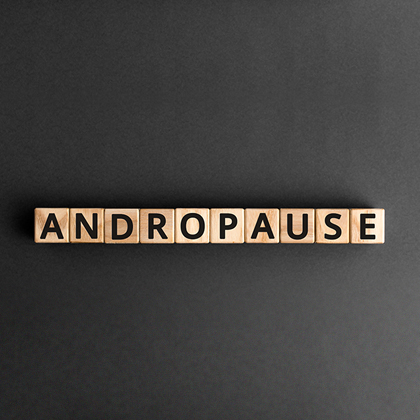
Nocturia, also known as frequent urination at night, is a common and frustrating symptom of benign prostatic hyperplasia (BPH), also known as an enlarged prostate. Besides its impact on sleep quality, nocturia can cause a cascade of other problems ranging from mental health challenges to relationship struggles.
If you’re grappling with BPH and nocturia, please know you’re not alone. Many men encounter similar challenges. Below, we take a look at some simple ways to manage your symptoms, support your overall wellbeing, and improve your quality of life.
Understanding BPH and nocturia
Let’s quickly recap the basics: What is the prostate? The prostate is a small gland located just below your bladder and in front of your rectum that plays a critical role in reproductive function.
As you age, your prostate can naturally increase in size. In some cases, however, it can enlarge so much that it presses against the urethra and results in benign prostatic hyperplasia.
Aside from causing urinary issues, such as dribbling at the end of urination, passing more urine during the day, and struggling to empty your bladder completely, BPH can also lead to nocturia – frequently urinating at night.
While an enlarged prostate isn’t typically life-threatening, it can impact your quality of life, especially regarding sleep.
How does nocturia affect sleep?
The effects of nocturia extend far beyond mere inconvenience; they can make you feel isolated and exhausted.
Each night-time trip to the bathroom disrupts your sleep cycle, leaving you groggy and drained the next day. The constant disruption to sleep patterns can also heighten emotional reactivity, fuelling feelings of anxiety and low mood.
To complicate matters further, sleep and stress often have a bidirectional relationship: worsening mental health outcomes can hinder sleep, perpetuating a vicious cycle of sleeplessness and emotional distress.
Nocturia may even strain romantic relationships. If you share a bed with a partner, there's a chance they'll also be disturbed when you need to use the bathroom, impacting their sleep and overall wellbeing, and potentially fuelling tension in the relationship.
Best ways to manage nocturia
Fortunately, there are plenty of ways to help manage enlarged prostate symptoms and improve sleep quality.
Lifestyle changes
Implementing the following lifestyle changes may help manage BPH symptoms like nocturia.
-
Reduce fluid intake in the evening, particularly in the hours before sleeping.
-
Elevate your legs an hour or more before bed. This may reduce the resorption of excess fluid accumulated in the body tissues to urine during sleep.
-
Avoid alcohol and caffeine intake in the afternoon, as they act as diuretics and increase urine production.
Sleep hygiene
Practising good sleep hygiene can also help set the scene for a restful night and minimise night-time trips to the bathroom.
-
Maintain a consistent sleep-wake cycle
-
Get plenty of natural morning light to calibrate your circadian rhythm
-
Implement a relaxing wind-down routine 30-60 minutes before bed
-
Exercise daily, but try to avoid vigorous activity too close to bedtime
-
Optimise your sleeping setup with a quality mattress, bed linen, and bedding
-
Ensure your bedroom is cool, quiet and dark
-
Avoid using electronic devices in the 90-minutes before bed
-
Learn ways to fall back to sleep after going to the bathroom
-
Consider magnesium, tart cherry juice, theanine and lemon balm, Valerian, and Griffonia seed extract to support sleep
You can read more about supporting sleep on our dedicated Sleep Health Hub here.
Emotional support
Living with BPH and nocturia can be extremely challenging, so practising self-compassion is vital. Be extra kind to yourself on nights when sleep eludes you and remember that you're not alone in this journey.
Of course, getting enough support is equally important. Medical professionals, loved ones, men’s groups, and therapists can provide valuable emotional guidance as you navigate the complexities of BPH and nocturia.
Broaching the subject of urinary issues and nocturia with your romantic partner may not always be easy due to cultural taboos and outdated notions of masculinity. However, your partner can offer some of the best support and validation. If you’re unsure how to tackle this conversation, look at our helpful guide on talking to your partner about BPH here.
Remember, dealing with BPH and nocturia won’t ever diminish your manhood. Your health and happiness should always come first, and speaking openly about urinary symptoms demonstrates strength, responsibility, and a commitment to your wellbeing.
Aside from leaning on loved ones, you can contact our team of expert Nutrition Advisors for free, confidential health advice.
Other lifestyle changes to support BPH
Addressing other areas of your lifestyle may also improve nocturia and other BPH symptoms.
-
Adopt a Mediterranean diet: Studies suggest men who eat more fruit and vegetables are less likely to develop prostate problems (1).
-
Include specific nutrients, such as zinc, vitamin D3, beta-sitosterol and quercetin. You can explore our expert nutritional formulas for mature men here.
-
Go easy on red meat, dairy, and caffeine, as they commonly aggravate BPH symptoms and urinary issues like nocturia.
-
Move more. A few hours of movement every week may keep BPH and urinary symptoms in check.
-
Reduce stress. Unfortunately, stress can aggravate benign prostatic hyperplasia, so finding coping strategies is essential. Relaxation techniques, engaging in your favourite hobbies, and exercise can help.
-
Avoid smoking. Quitting smoking is critical for those with BPH.
Read more about lifestyle changes to support benign prostatic hyperplasia here.
Want to find out more?
The effects of nocturia are complex and multifaceted. This common BPH symptom can affect your sleep quality, mental health, and even romantic relationships. If you’re finding things difficult, don’t despair. Aside from implementing the changes suggested above, try to be kind to yourself and lean on loved ones for support.
Remember, you can contact our team of expert Nutrition Advisors for free, confidential health advice. To explore more ways to support your prostate health, visit Nutrition Buzz.
A final note from our Nutrition Advisors: If you experience any signs of urinary discomfort, such as nocturia (frequent urination at night), a sensation of incomplete bladder emptying, or a weakened or interrupted urine stream, it’s important to consult your doctor for medical advice. They can help determine if you have benign prostatic hyperplasia or another prostate problem that may need prompt medical intervention.
*Subject to cookie consent
References:
-
Russo GI, Campisi D, Di Mauro M, Regis F, Reale G, Cimino S, Gentile C, Morgia G., Relationship between Dietary Patterns with Benign Prostatic Hyperplasia. Nutrients. 2021;13(11):4148.
You Might Also Like
Disclaimer: The information presented by Nature's Best is for informational purposes only. It is based on scientific studies (human, animal, or in vitro), clinical experience, or traditional usage as cited in each article. The results reported may not necessarily occur in all individuals. Self-treatment is not recommended for life-threatening conditions that require medical treatment under a doctor's care. For many of the conditions discussed, treatment with prescription or over the counter medication is also available. Consult your doctor, practitioner, and/or pharmacist for any health problem and before using any supplements or before making any changes in prescribed medications.

Olivia
Olivia Salter has always been an avid health nut. After graduating from the University of Bristol, she began working for a nutritional consultancy where she discovered her passion for all things wellness-related. There, she executed much of the company’s content marketing strategy and found her niche in health writing, publishing articles in Women’s Health, Mind Body Green, Thrive and Psychologies.
View More



